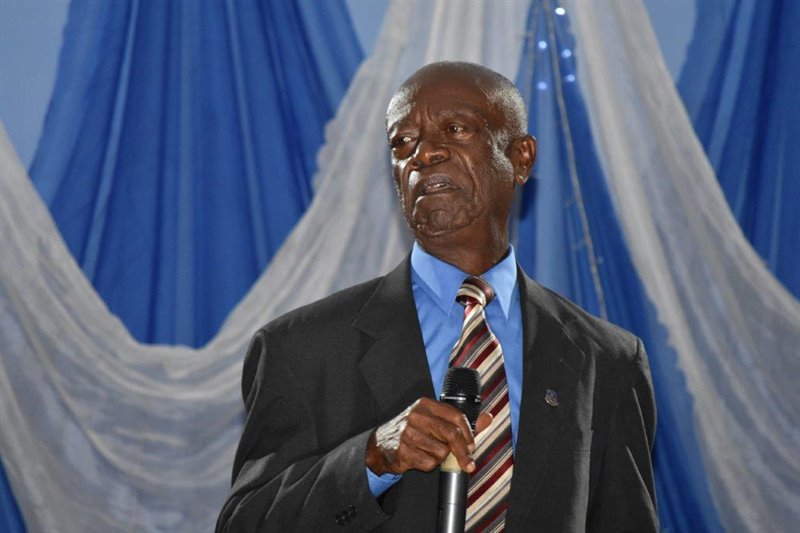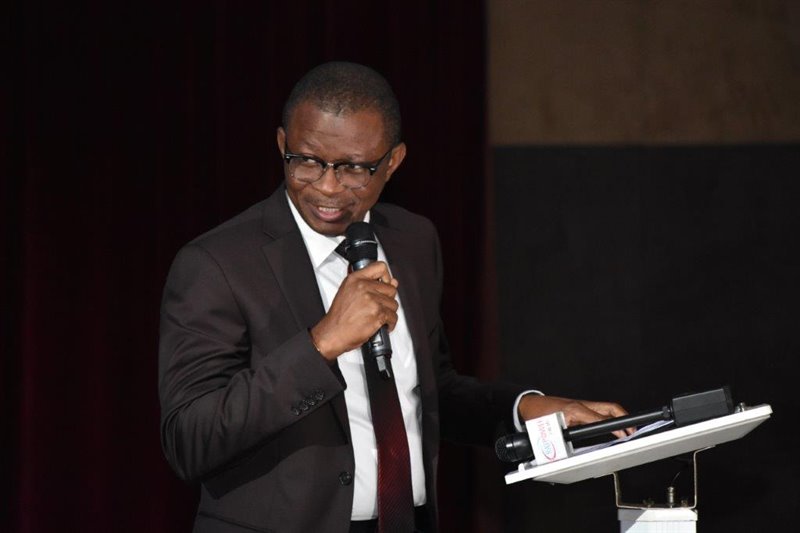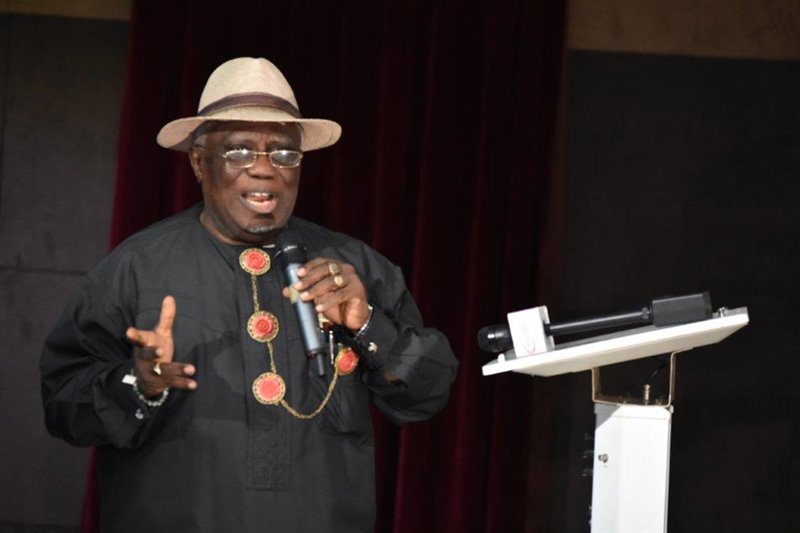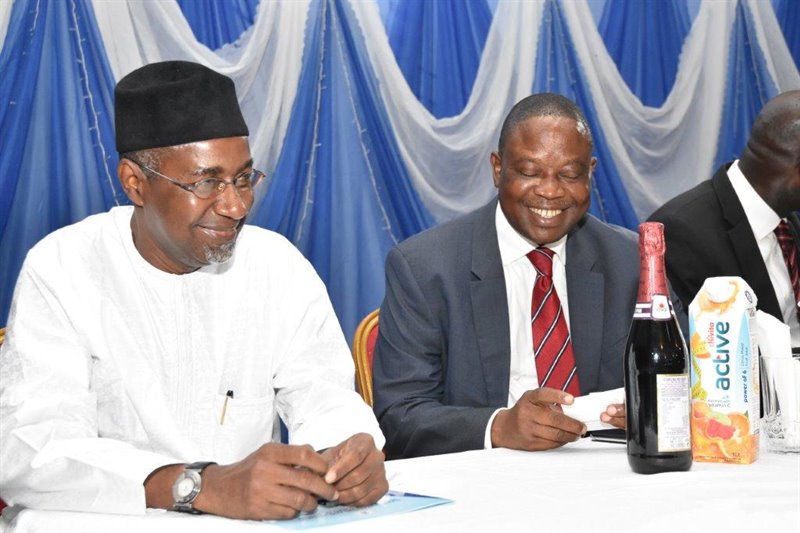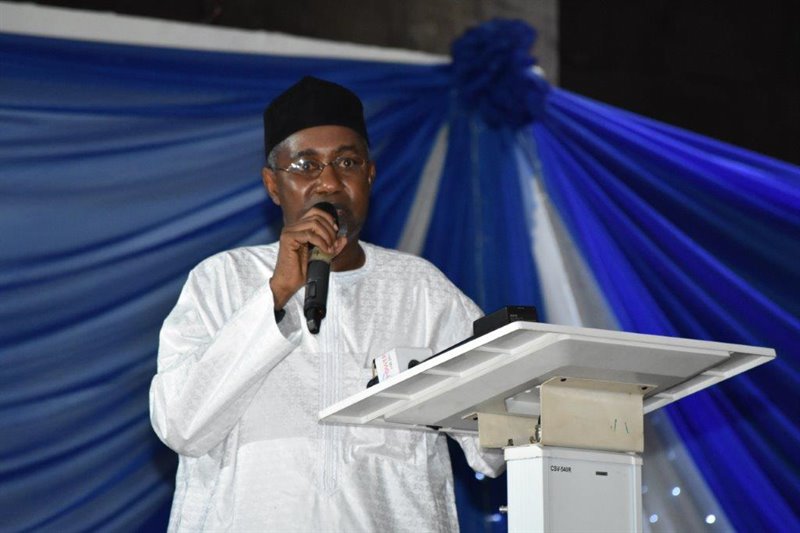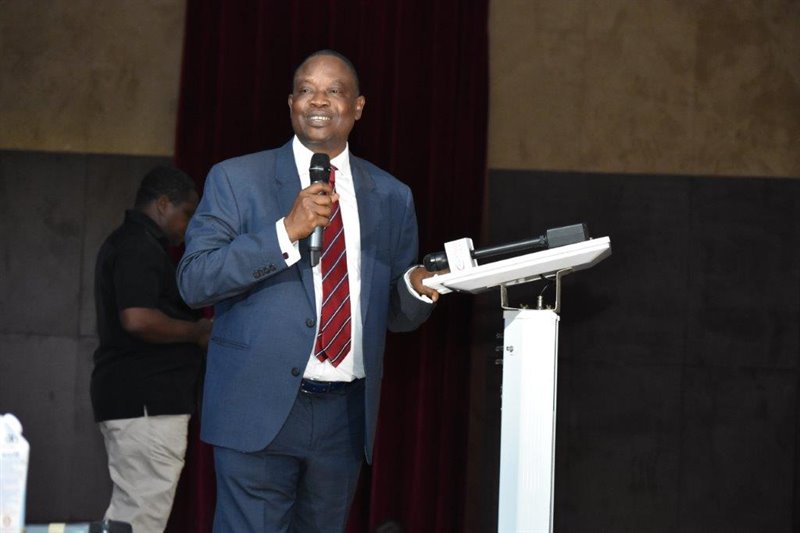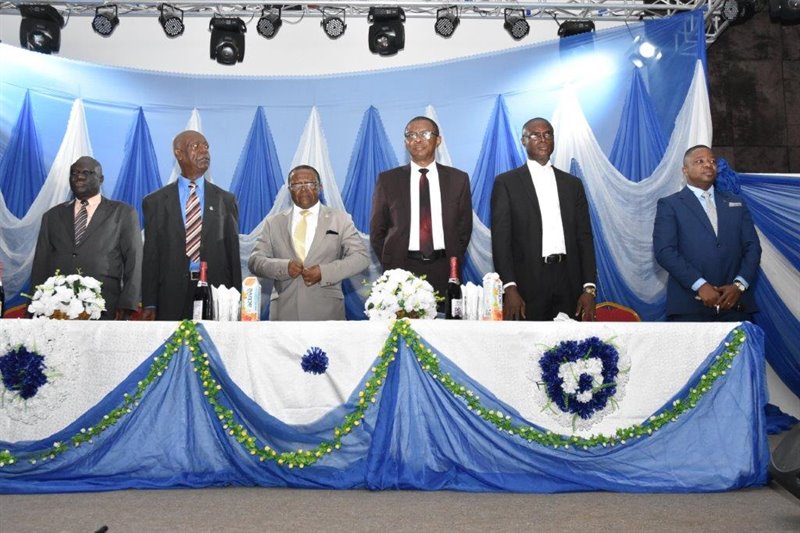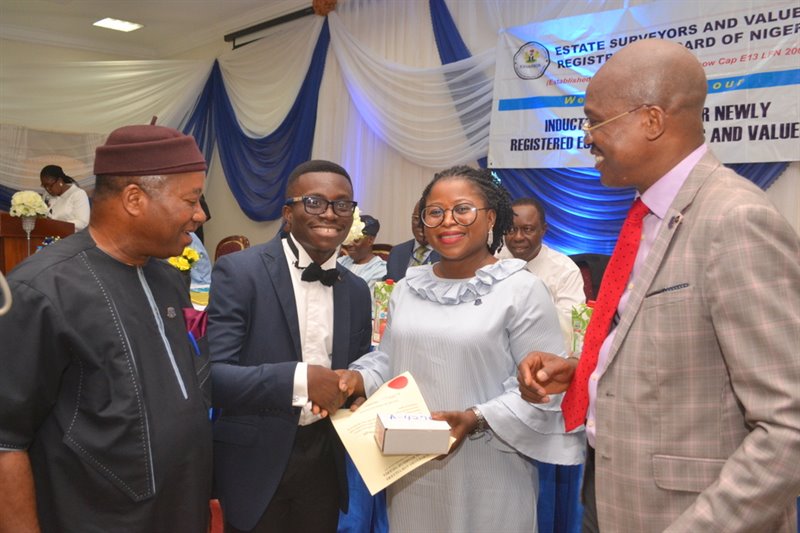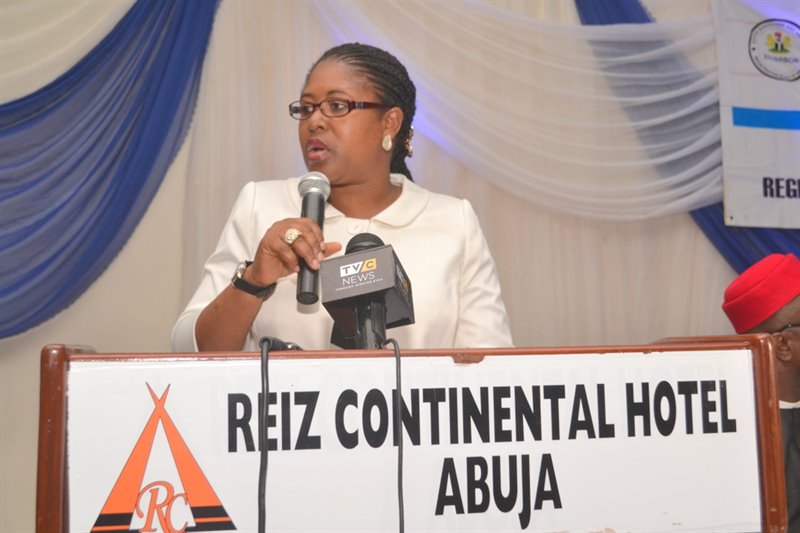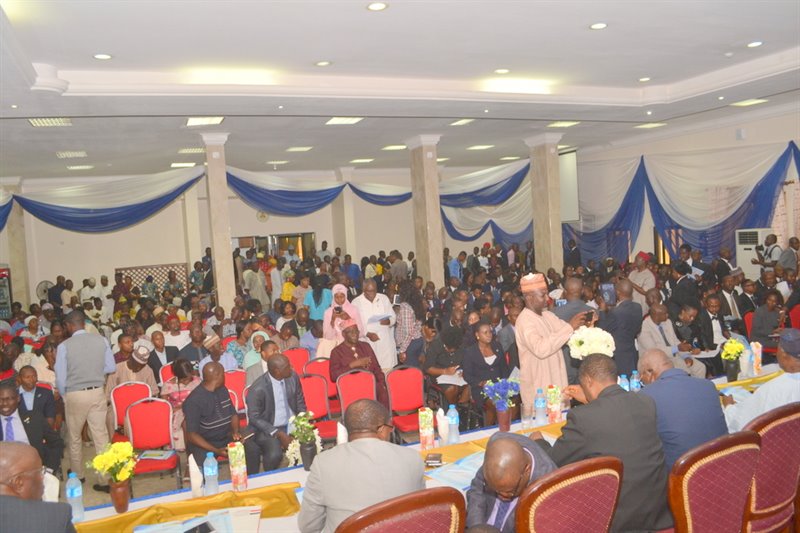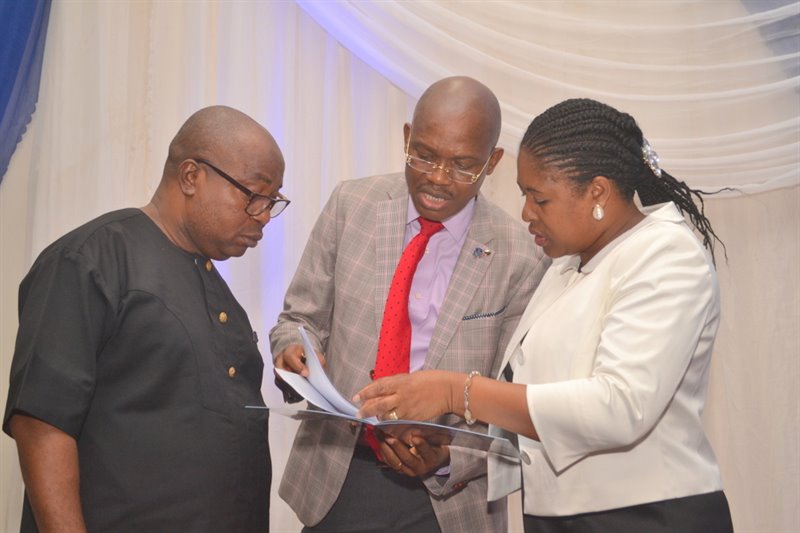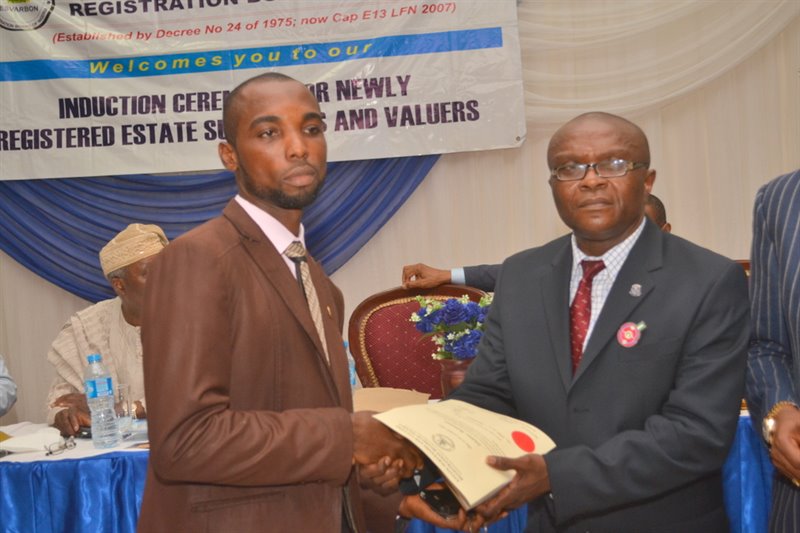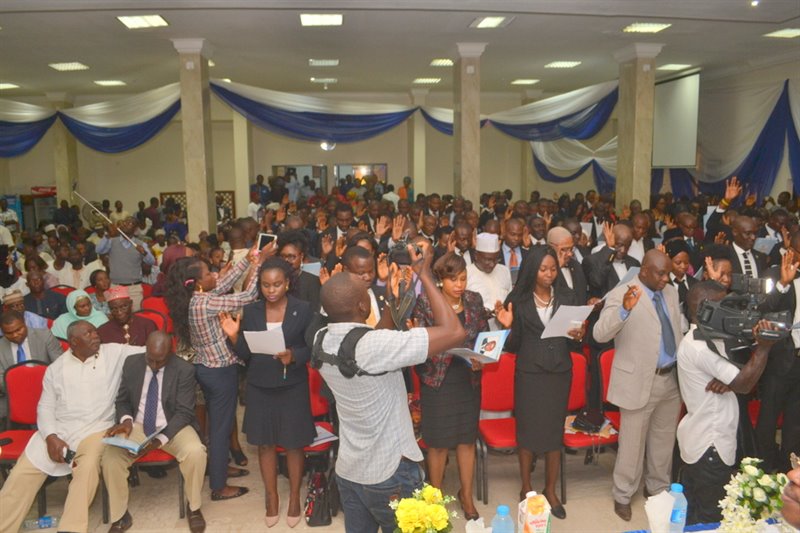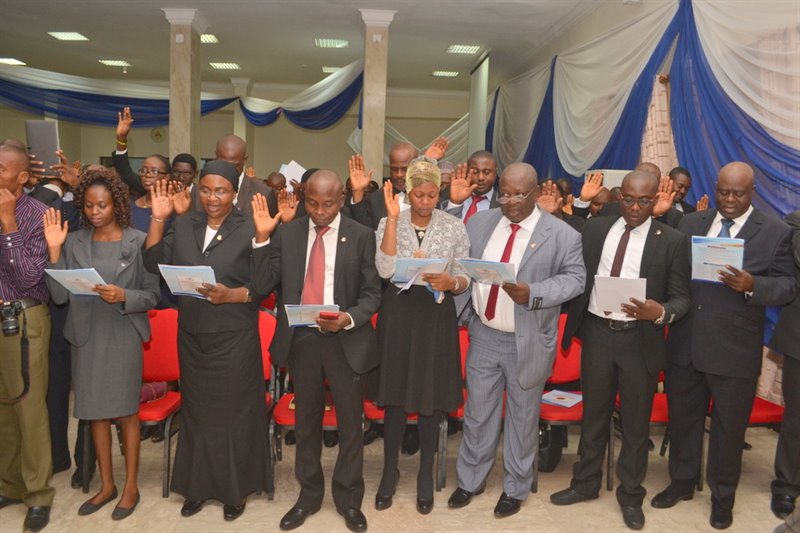Real estate market transparency in Nigeria the top priority for new IVSC member organisation, ESVARBON
- October 30, 2018
- Posted by: admin
- Category: Latest News
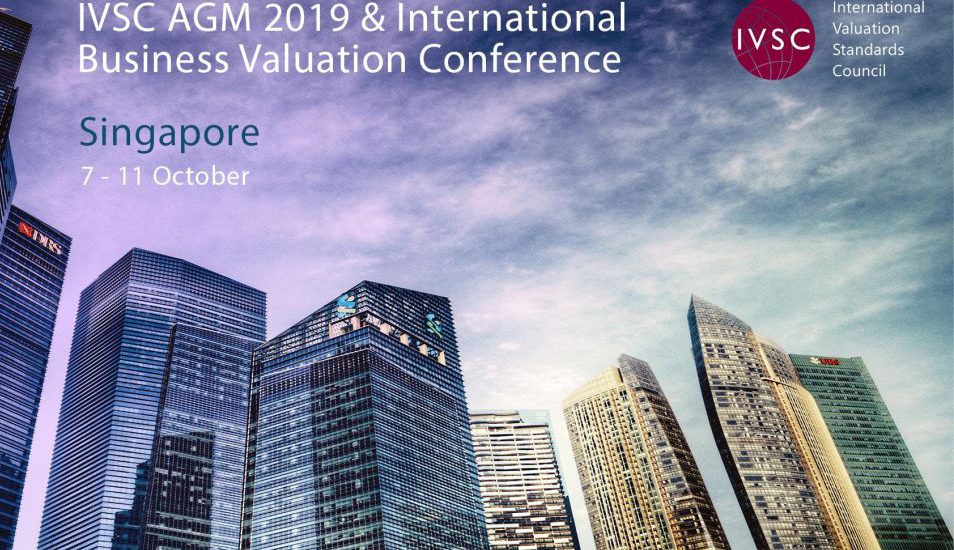
This month, Nigeria’s statutory body for real estate valuation professionals, ESVARBON, joins the IVSC as an institutional member. It coincides with the recent adoption of IVS in market rules in Nigeria which aims to bring greater transparency to the most populous country in Africa and the world’s 20th largest economy.

We spoke to ESVARBON Chairman, Sir Nweke Umezuruike (right), about the work of the organisation and the growing maturity of the valuation profession in Nigeria.
What is the history and role of ESVARBON and how is it helping to advance the valuation profession in Nigeria?
The Estate Surveyors and Valuers Registration Board of Nigeria (ESVARBON) was established by decree in 1975 and the law has since remained in our statute books.
ESVARBON, in conjunction with the National Universities’ Commission (NUC) and the National Board for Technical Education (NBTE), determines the requisite knowledge which persons desiring to practice Estate Surveying and Valuation in Nigeria must possess to be registered.
Upon meeting the necessary requirements; ESVARBON registers professional valuers. Such persons are also required to update their knowledge and skills through mandatory continuing professional development (MCPD) and earn credit points in order to renew their licences to practice.
How is the profession regulated in Nigeria?
The board is empowered by law to regulate the practice of estate surveying and valuation in all its aspects and ramifications in Nigeria.
After registration, professionals are expected to abide by the law, as well as the rules and regulations issued by the ESVARBON Board, guiding the practice of estate surveying and valuation. Any person falling short of any of these incurs the wrath of the board.
Members of the public are encouraged to report concerns regarding registered persons to the board for disciplinary action. If they are found to be in breach of the rules, registered persons may be required to make good, by financial payments any damages they may have caused users of the valuer’s services. They may also be disciplined in some other ways, the ultimate being withdrawal of practice licence.
The board from time to time will run training programs for registered persons to update their knowledge, as well as collaborate with accredited training providers, especially in emerging trends; and for users of services of estate surveyors and valuers to acquaint them with what to expect from estate surveyors and valuers.
Why is it important to Nigeria that an organisation such as ESVARBON exists?
All aspects of business require a high level of trust; and practitioners in any aspect of it must possess qualities that engender confidence in users of business related services. Estate surveyors and valuers being one such group of professionals must be seen to possess such qualities.
There is therefore the need to have a body like ESVARBON which can offer guarantees and assurances around a practitioners competence and qualities.
The law clearly provides that no person who is not registered as an estate surveyor and valuer may hold him or herself out to practice as such. The public therefore expects practitioners to possess and use the number, seal and stamp issued by the Board.
What is your role as Chairman and what is your background in valuation?
I am a registered estate surveyor and valuer, No. M 0145, having been amongst the first set of estate surveyors and valuers registered by the board. I hold a B. Sc. Degree in Estate Management and have worked as a valuer in both the public and private sectors of the economy. I’m also a lawyer and was called to the Bar in 1980; though I have remained in estate practice since then.
As Chairman of the board, I chair board meetings and give general direction on the workings of the board. The Registrar is the chief executive of the board in charge of day to day running of the organisation.
Under the law, the Chairman is also the Chairman of the Estate Surveyors and Valuers Disciplinary Tribunal which sits over all matters of professional misconduct when the Investigating Panel finds that a prima facie case has been made against any registered person.
In matters affecting non-registered persons, the Board under my chairmanship, will approach the police for criminal investigation. The work of this tribunal is very weighty in the sense that appeals on the rulings of the tribunal go to the Supreme Court – the highest court in the land.
What are some of the big challenges facing ESVARBON in the administration and regulation of the valuation profession in Nigeria?
The two main challenges are paucity of reports of professional misconduct and paucity of funds.
Members of the public often shy away from bringing reports of infringements to the Board. To obviate this challenge, the Board has resolved to enquire into matters that come within its knowledge even if not formally reported, as authorised by law to do.
As for funds, since the Board is a federal government parastatal, we continue to plead with government to improve funding, while the board intensifies effort in the area of internally generated revenue.
How have the standards governing valuation in Nigeria evolved to where they are today?
The first generation of valuers in Nigeria were trained in England and generally held the RICS professional designation, bringing with them the standards set by the RICS.
It was that group that set up The Nigerian Institution of Estate Surveyors and Valuers (NIESV) – an association of estate surveyors and valuers and students of estate management in Nigeria, which can be said to be the precursor for ESVARBON.
With the establishment of ESVARBON, rules and regulations for valuation practice have been established in law. These Rules and Regulations attempted to formulate standards; until lately when ESVARBON, with the active encouragement and support of IVSC and RICS, published The Green Book – The Nigeria Valuation Standards, which fully incorporate IVS.
What can you tell us about ESVARBON’s new disciplinary tribunal?
The disciplinary tribunal is not new. It has always been there. It is just that, historically, the Tribunal has not often convened, either because of paucity of reports earlier referred to or the will to so do.
The present Board has set out to make good use of the Tribunal and the powers conferred on it by law. The board has resolved not just to bark but also to bite! We hope the necessary cooperation from users of the services of estate surveyors and valuers will come as expected.
Right now, a couple of cases are at the investigation stage. As soon as investigations are completed, and prima facie case established, the Tribunal will be convened.
Why is it important that valuation practice in Nigeria follows international norms set out in IVS?
As we often remind ourselves, the world is a global village. Foreign direct investments are coming to Nigeria and if Nigeria gains investors’ confidence, more of such investments will come. It is important therefore that valuers in Nigeria are seen as keeping to international norms, especially as set out in IVS.
What does the future of the valuation practice in Nigeria look like?
With increase in international investments in Nigeria, the services provided by valuers will be required more and more. With continued increase in population in Nigeria, more and more valuers would be required to service the increased population.



